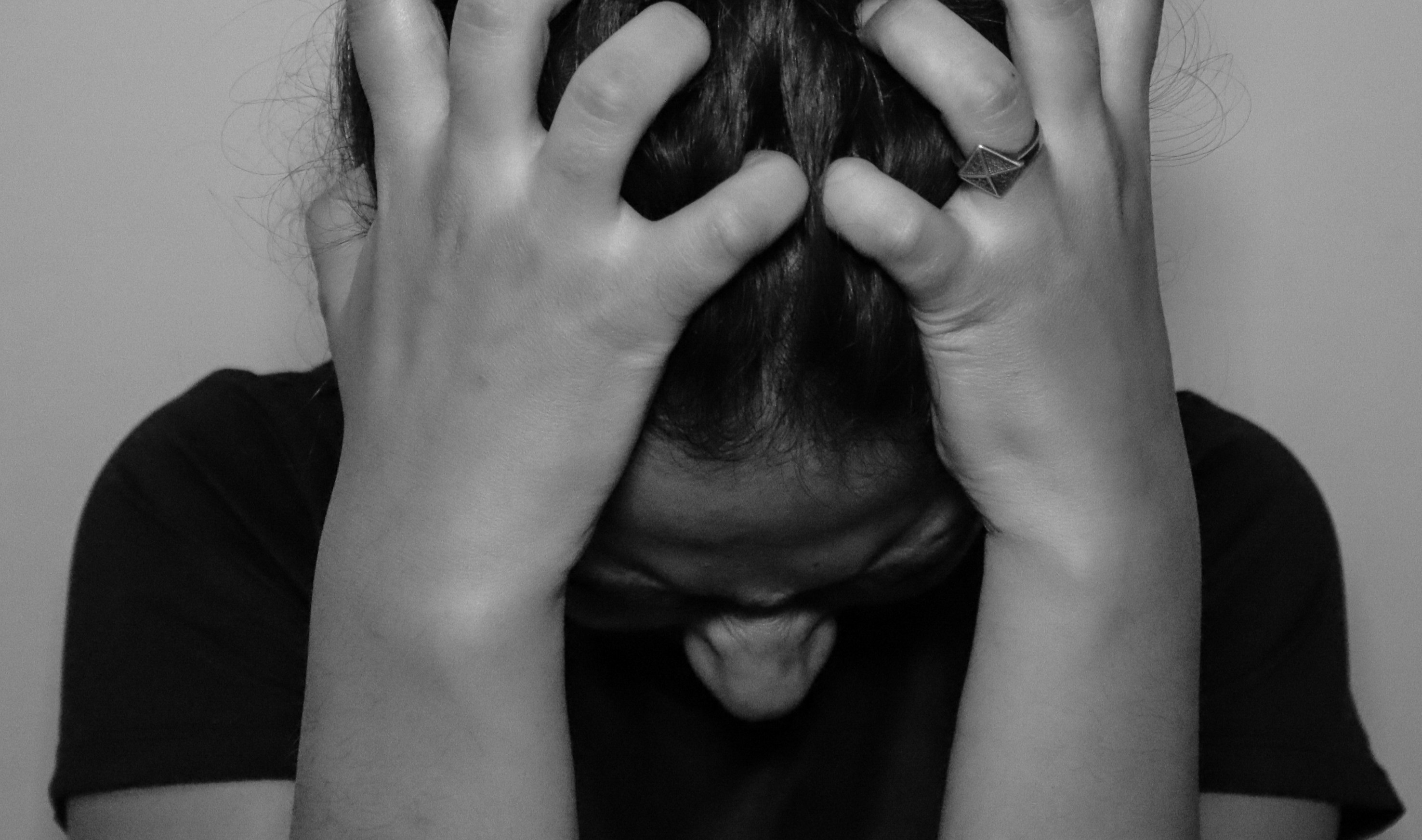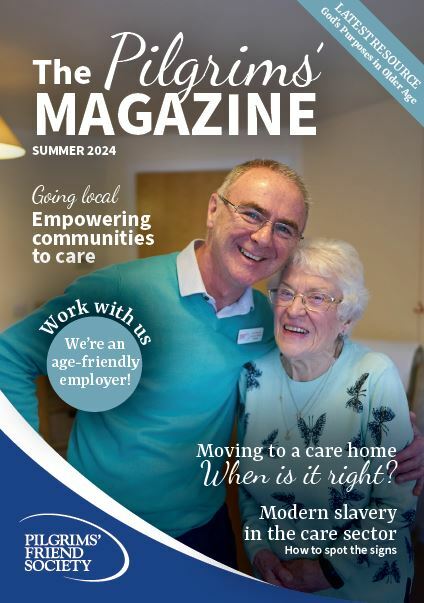
Thursday 30th May 2024
Spotting and stopping modern slavery
Modern slavery is a growing problem in the UK, with workers in the social care sector especially vulnerable to exploitation. Peter Ladd from Christian Action Research and Education (CARE) explains why this is, what the signs are and steps towards countering the problem
Martha* moved from India to the UK to work in a care home in 2022. She had been keen to move to the UK for some time, and had heard that there were job openings within the care sector. It all seemed rather expensive though: her employer had said that she would need to pay them for her certificate of sponsorship, and that it would cost her £10,000.
When she got here, she didn’t receive a written contract. In theory, they had agreed on her hours, but she found herself working very long days, sometimes as long as 18 hours in a single shift, day-after day, for well over a week. And her salary?
Most of it seemed to go towards paying back her employer for that expensive certificate of sponsorship, and the interest on that only ever seemed to be going up. She would have to live on £200/month.
Sometimes, she couldn’t even afford to buy enough to eat. She tried speaking up one time, but that only made it worse. Her boss threatened to hurt her family back in India if she reported her situation, and that he would have her deported as an illegal immigrant. Eventually, she rang the Modern Slavery helpline, who took her case to the police.
Stories like Martha’s are becoming increasingly common within the care sector. Historically, it had represented only a small percentage of cases of modern slavery: in 2017, of the 711 cases reported to the UK Modern Slavery & Exploitation helpline, the care industry contributed just seven, less than 1%.
By 2022, of the 1,046 cases, 106 came from the care industry. According to the most recent numbers, that figure has continued to rise since then.
The reasons for such a stark rise are not difficult to discern. Amid a social care crisis, and an increasingly ageing population, Britain has had a shortage of skilled workers in the sector for some time; this has been compounded by persistent government underfunding and low pay, which meant that before the pandemic, around 20% of residential care workers were living in poverty. Brexit also had an impact on the care industry: many care staff from EU countries did not apply for leave to remain.
All in all, there were 152,000 vacant posts in the adult social care sector in England in 2022/23. To address the shortage in staff, following recommendations from the Migration Advisory Committee, the Home Office added care workers to the labour shortage list – meaning care workers from abroad were prioritised over economic migrants working in other industries – but they ignored the suggestion to increase pay.
This has led to a large increase in foreign workers from non-EU countries (approximately 90% of care workers currently come from non-EU countries) who, understandably, have been hoping to raise their quality of life or to earn more money than they might back home, providing ample opportunity for exploitation.
In 2022/23, when gender was known, 62% of potential victims of modern slavery were women. The most common country by far was India (48%), followed by Zimbabwe (15%) and Nigeria (8%). 23% of victims had responded to a job offer or advertisement, and 13% had been taken in by false promises or statements. 5% said they had been responding to an offer of accommodation.
At CARE, we believe that every human being has been made ‘in the image of God’ (Genesis 1:27), and accordingly, is endowed with an inherent dignity and worth. Within Old Testament Israel, God’s law forbade the Israelites from enslaving one another, and when Jesus came announcing the Kingdom of God, he said that he had come to bring ‘“good news to the poor”’ and to proclaim ‘“freedom for the captives”’ (Luke 4:18).
God’s heart is for people to be free; when Paul wrote in Galatians 5, ‘it is for freedom that Christ has set us free’, he was predominantly talking about freedom from the requirements of Old Testament law, but his statement stands as a clarion about God’s heart: it is not His will for any human to be in bondage.
To receive your copy of the magazine FREE four times a year, sign up now.
In the last decade, we have successfully campaigned for measures that provide greater protection to victims of modern slavery. We lobbied for groundbreaking, bespoke modern slavery legislation in the form of the Modern Slavery Act. And today, we are opposing threats to victim protections, such as provisions in the Rwanda plan that would see victims lose vital forms of support.
If you would like to partner with us, you can sign up to our free mailing list by visiting our website – care.org.uk – and by following CARE on social media.
We can all play a part in looking out for modern slavery in our communities as well. UK authorities stress the importance of public vigilance, given that modern slavery is a crime that happens under our noses.
There are some key signs to look out for in identifying potential victims of modern slavery. Some victims might consistently work for long hours without sufficient breaks, for multiple days in a row. Others may be excessively monitored, or lack control over their movements or other personal decisions. Some will lack access to regular means of communication or might not be able to produce identification documents.
It is also common for modern slavery victims to not be provided with proper employment contracts, to not receive a fair wage, or to have a lack of control over their finances: this can mean they own very few personal possessions or turn up to work wearing the same clothes every day. In particular, they may display
signs of being controlled or coerced, and appear frightened or anxious in their behaviour.
At Pilgrims’ Friend Society we work to prevent modern slavery by:
• Carrying out eligibility and right to work checks for all our staff
• Only working with agencies that carry out appropriate employee checks
• Training our managers to remain vigilant
• Raising awareness through posters in toilets and other discreet places in our care homes and housing schemes
Please pray:
For an end to the exploitation of workers in the care sector.
Modern Slavery – online event
Tuesday 25th June, 2pm
Christians in Care will be hosting an online talk exploring the issue of modern slavery, featuring guest speakers Peter Killingley from CARE and a representative from Their Voice.
To sign up, visit: www.christiansincare.org/events
If you suspect an instance of modern slavery…
Do not confront either the victim, or the suspected trafficker; your safety and that of any possible victims is of primary importance. Instead, you can contact:
The Police
101, or 999 if there is immediate danger
The National Modern Slavery Helpline
0800 0121 800, modernslaveryhelpline.org
The Gangmasters and Labour Authority, who record concerns about mistreatment of workers
0800 432 0804, intelligence@gla.gov.uk
Working in the care sector...

Christians in Care
Christians in Care is a new network designed to connect Christians in the care sector

10 skills and qualities you need to be a carer
Caring has been unfairly labelled by some as a low-skilled role. Our Operations Manager Jane Trimarco highlights the skills and qualities that show it’s anything but



































